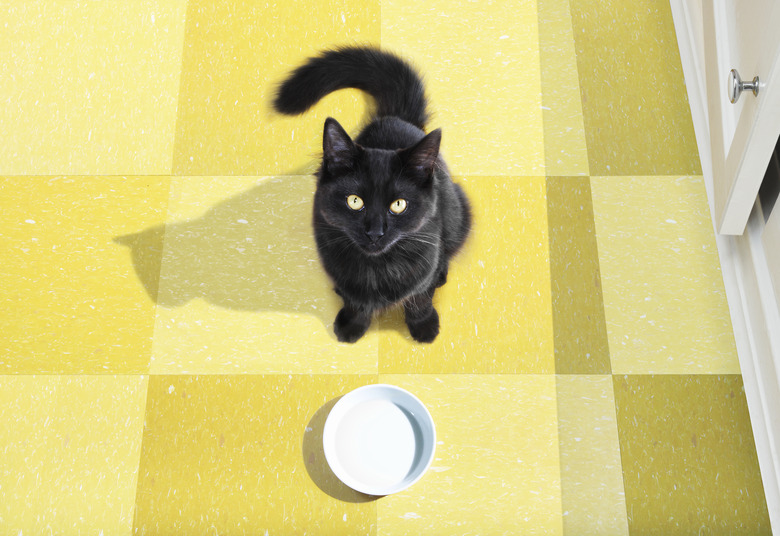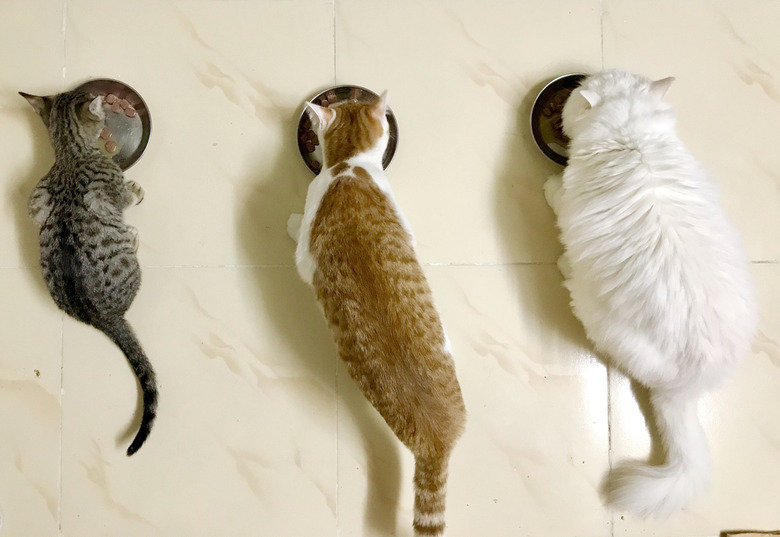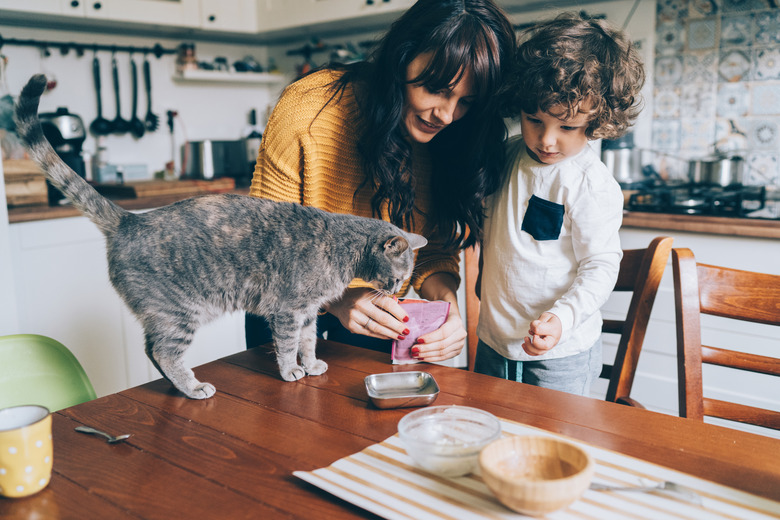How To Create A Cat Feeding Schedule
Whether you're getting a new cat or trying to establish a feeding routine for a beloved pet you already have, it's a good idea to look into a normal cat feeding schedule. Not only will you create some consistency in your cat's life, but you could also ensure that they stay healthy. Learn about coming up with your cat's feeding schedule, as well as how much food they should eat and how to prevent overeating.
What’s a good cat feeding schedule?
What's a good cat feeding
schedule?
A good cat feeding schedule consists of feeding your cat at least two meals a day and spacing them 12 hours apart. You could also feed your cat five times a day during breakfast, lunch, the afternoon, dinner, and right before they go to bed. Just make sure that you don't let more than 12 hours pass before you feed them again because they could get nauseous.
If your cat grazes on their food, then five times a day might be a better option. At the beginning of the day, measure out their food and divide it into five small meals that you give them at those different times. No matter what, make sure you keep feeding times consistent. Cats like consistency, and it helps their digestive system stay healthy.
What amount of food should a cat eat?
What amount of food should a
cat eat?
The suggested portion sizes on cat food bags are going to give you a rough estimate of how much your cat should eat in a day. Usually, if you're feeding them high-quality and commercially produced dry food that contains a good protein source, then your indoor cat will need 1/3 to 1/2 a cup of food per day. However, this amount of food may not work for your cat depending on a variety of factors including their age, size, health and reproductive status, activity level, and whether or not you have an indoor or outdoor cat.
For instance, kittens are very active and need more nutrients, while adult and senior cats don't normally need to eat as many calories throughout the day. Cats with smaller frames need less food than cats with bigger frames, and outdoor cats need to eat more than indoor cats because they are more active. Pregnant and nursing cats require more calories, and spayed and neutered cats need less because they have a slower metabolism. Cats that are overeating and overweight will need to be put on a diet and shouldn't eat as much. You should contact your veterinarian for information on how much to feed your cat instead of simply following what it says on the cat food label. It's also recommended to measure out your cat's food with a measuring cup so you can be exact.
Should my cat be free feeding?
Should my cat be free
feeding?
Free feeding is when you leave your cat's dry food out without restricting access. They can eat as much or as little as they want throughout the day. If your cat free feeds and doesn't gain weight, then perhaps they have enough self-control not to eat everything at once. But other cats don't know how to regulate and may just keep eating, which means they'll gain weight, make themselves sick, or both. If your cat becomes overweight or obese, they could be at serious risk for health issues like lameness and skin conditions. Also, obese cats are twice as likely to die when they are six to 12 years old as opposed to living a full life.
In summary
In summary
Establishing a good feeding routine for your cat and giving them the right amount of food is going to contribute to their overall health. Your cat will likely feel better now and have a much brighter future ahead.


